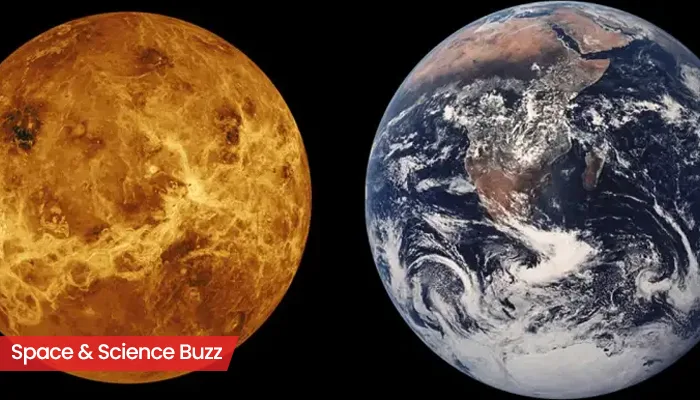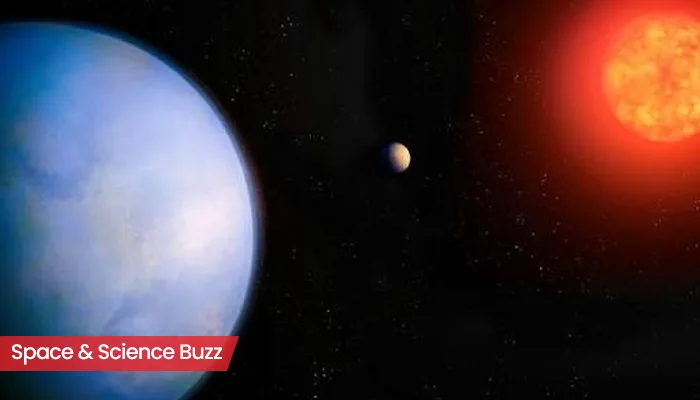Quantum Physics Proves That Time is an Illusion: Taking a Look at How Movies and TV Shows Explore this Mind-Bending Concept
- Admin
- 1 year ago
- 4 minutes read

The nature of time has always perplexed scientists and philosophers alike, often leading to a dead-end in the pursuit of a unified theory of everything. However, a groundbreaking study published on May 10 in the journal ‘Physical Review A’ suggests that time may not be a fundamental aspect of the universe but rather an illusion created by quantum entanglement.
This study has opened new avenues for understanding time, aligning intriguingly with how filmmakers have explored the concept in movies and TV shows. By examining how popular culture depicts time as an illusion, we can better appreciate the profound implications of these scientific discoveries.
Interstellar: A Masterclass in Temporal Manipulation
Christopher Nolan's "Interstellar" delves into the effects of relativity, particularly time dilation, where time slows down in the presence of strong gravitational fields. This phenomenon is brilliantly portrayed in the scenes on the planet Miller, where every hour equals seven years on Earth. The emotional and narrative weight of this time discrepancy underscores the human experience of time, making it a central theme of the film.
Nolan's meticulous approach to depicting time aligns with Einstein's theories of relativity, making "Interstellar" not just a cinematic spectacle but also a thought-provoking exploration of temporal mechanics. This aligns with the recent study's suggestion that our conventional understanding of time might be limited, offering a cinematic reflection of the scientific quest to unravel time's true nature.
Inception: Dreams Within Dreams
Nolan's fascination with time continues in "Inception," where he explores the subjective nature of time within dreams. In the film, time flows differently across various dream levels, with minutes in the real world translating to hours or even years in deeper dream states. This layered structure of time challenges viewers' perceptions, blurring the lines between reality and illusion.
"Inception" mirrors the idea proposed by the new study, suggesting that time may be a construct rather than an absolute reality. By manipulating time in such a visually and intellectually stimulating manner, Nolan invites audiences to question their understanding of time and reality.
The Matrix: Reality as a Simulation
"The Matrix," directed by the Wachowskis, presents a reality where time and existence are artificially constructed within a simulated environment. The concept of time as an illusion is central to the film, as characters discover that their perceived reality is a digital construct controlled by an advanced intelligence.

This portrayal resonates with the recent scientific findings that time might emerge from quantum entanglement, suggesting that our experience of time could be a superficial layer over a more complex underlying reality. "The Matrix" thus serves as a compelling narrative that bridges science fiction and philosophical inquiry into the nature of time.
Arrival: Non-Linear Perceptions of Time
In "Arrival," directed by Denis Villeneuve, time is perceived non-linearly by an alien species. The protagonist, a linguist, learns to experience time as a fluid continuum rather than a sequential progression. This non-linear perception challenges our conventional understanding of past, present, and future.
"Arrival" reflects the new study's implications that time could be a manifestation of quantum phenomena rather than an independent entity. By presenting an alternative view of time, the film encourages viewers to consider the possibility that time's linearity is merely a human construct.
Dark: The Complexity of Time Travel
The German TV series "Dark" intricately weaves a narrative around time travel and its paradoxes, presenting a complex web of events that transcend conventional temporal boundaries. The series' depiction of time loops and causal chains exemplifies the absurdity and complexity of time as an illusion.
"Dark" aligns with the scientific proposition that time might not be a fundamental aspect of reality. By exploring time travel's theoretical and philosophical implications, the series provides a rich, narrative-driven examination of time's elusive nature.



.webp)
.WEBP)
.WEBP)
.webp)
.webp)


.webp)
.webp)
.webp)